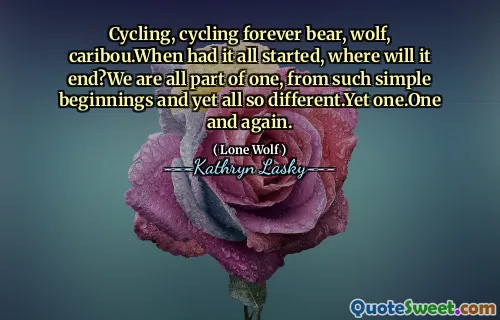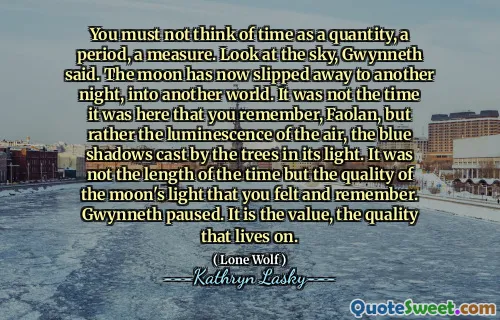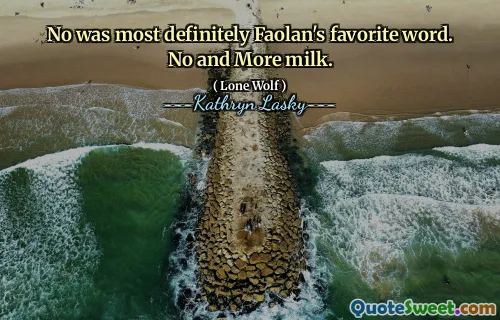
You must not think of time as a quantity, a period, a measure. Look at the sky, Gwynneth said. The moon has now slipped away to another night, into another world. It was not the time it was here that you remember, Faolan, but rather the luminescence of the air, the blue shadows cast by the trees in its light. It was not the length of the time but the quality of the moon's light that you felt and remember. Gwynneth paused. It is the value, the quality that lives on.
In "Lone Wolf" by Kathryn Lasky, Gwynneth shares a profound insight with Faolan about the nature of time. Instead of viewing time as a measurable entity, she encourages him to appreciate it through the beauty around them. This perspective shifts the focus from how much time has passed to the experiences and qualities that make time meaningful. The imagery of the moon and its light evokes an understanding that moments are defined by their emotional resonance rather than their duration.
Gwynneth's reflection highlights the importance of capturing the essence of experiences—like the way the moonlight creates enchanting shadows. This quality of time becomes a lingering memory that enriches one's life. It serves as a reminder that our most cherished moments are not confined to the hours or days they occupy, but are instead shaped by the lasting impressions they leave behind. The emphasis is on valuing the beauty and significance of our experiences over the simplistic measurement of time.









